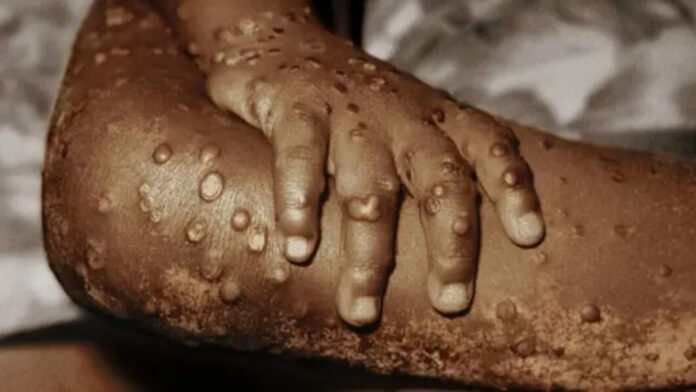By URN
The Ministry of education and Sports has issued guidelines and standard operating procedures aimed at preventing the spread of Mpox (monkeypox) in educational institutions.
In a circular addressed to all heads of institutions and other stakeholders, Dr Kedrace Turyagyenda, the new permanent secretary at the Education Ministry noted that the guidelines have been developed to ensure that the outbreak doesn’t disrupt ongoing school activities. “…the Ministry of Education and Sports together with the Ministry of Health, UNICEF who have developed guidelines for schools on prevention, detection, and control of Mpox in school settings to keep learners and staff safe and also avoid disruption of ongoing school activities,” the circular seen by our reporter reads in part.
In the circular, the ministry has issued five key guidelines to school heads aimed at preventing the spread of Mpox. These measures echo those previously implemented during the COVID-19 pandemic.
The guidelines emphasize the importance of cleaning and disinfecting all surfaces at least once a day. Schools are required to ensure that both learners and staff have access to soap and water for handwashing, or provide hand sanitisers as an alternative. Additionally, the ministry encouraged schools to promote practices that limit or prevent the sharing of personal items, including bedding and eating utensils. Schools were also told to identify isolation spaces for assessing students or staff who may be ill or suspected of having Mpox.
Sick staff or learners are also supposed to stay home if they exhibit symptoms, such as an undiagnosed rash or other symptoms of Mpox infection. If a staff member or learner is suspected of showing signs and symptoms of Mpox, the ministry has outlined seven key actions that schools should take.
These include isolating the individual and alerting nearby health facilities. Additionally, the circular allocates responsibilities to various personnel, similar to the approach taken during the COVID-19 pandemic.
Specific duties are assigned to school health clubs, health prefects, the school nurse, and teachers on duty, each following established standard operating procedures to ensure a coordinated response.
The Mpox outbreak was declared on July 24, 2024, after two cases were identified in Kasese District, as confirmed by the Uganda Virus Research Institute (UVRI).
Since that time, a total of 41 confirmed cases have been reported, with no fatalities recorded. These cases are spread across 10 districts: Nakasongola has reported 9 cases, Kampala 8, Wakiso 8, Mayuge 5, and Kasese 4. Additionally, Adjumani, Amuru, Isingiro, Kagadi, Mukono, and Nakaseke have each registered one case.
Mpox can be severe in certain populations, particularly among children under 15, pregnant women, individuals who are malnourished, and those living with HIV/AIDS. According to data, school-age children in Burundi, aged 5 to 19, represented 281 cases, which is 33 percent of the total 854 Mpox cases in the country.
The disease is characterized by symptoms such as fever, skin rash, and swollen lymph nodes, and spreads through close contact with infected individuals or contaminated materials.
Both the World Health Organization (WHO) and the Ministry of Health have highlighted that schools, as congregate communities with crowded environments, present a high risk for transmission.
Meanwhile, John Chrysostom Muyingo, the State Minister for Higher Education, reassured schools that the Ministry of Health is confident in its ability to contain the mpox situation. He advised that there is no need for panic, as was seen during the COVID-19 pandemic.
Instead, he urged schools to implement the standard operating procedures (SOPs) provided by the ministry to ensure safety and preparedness.




